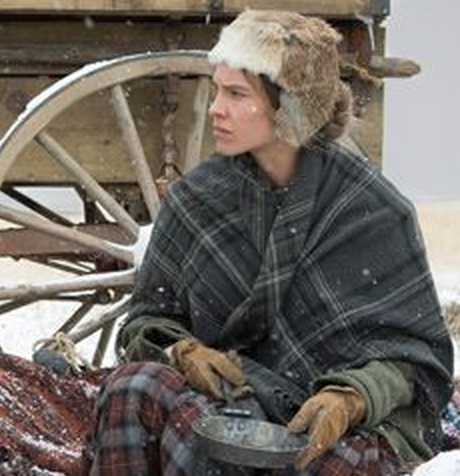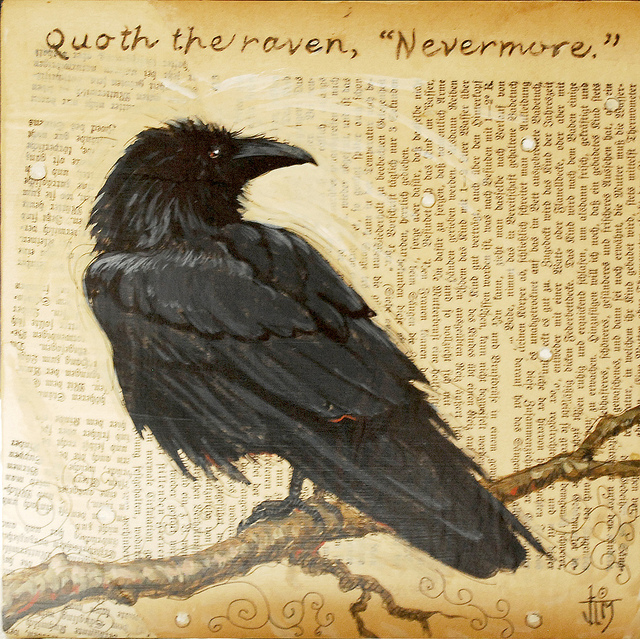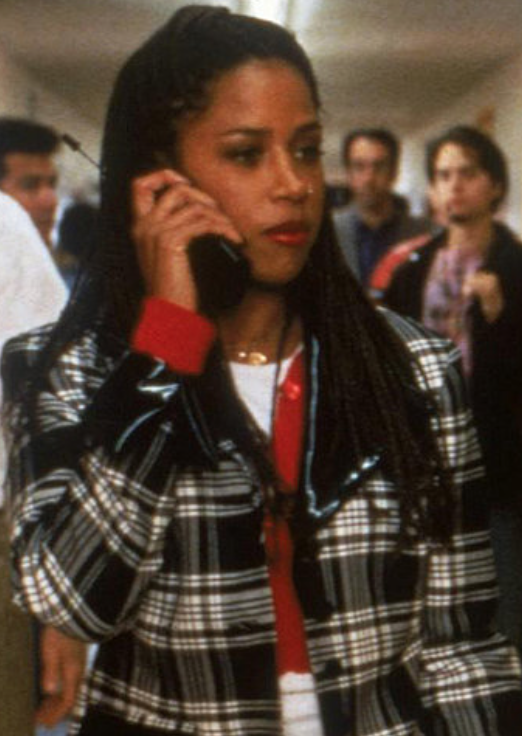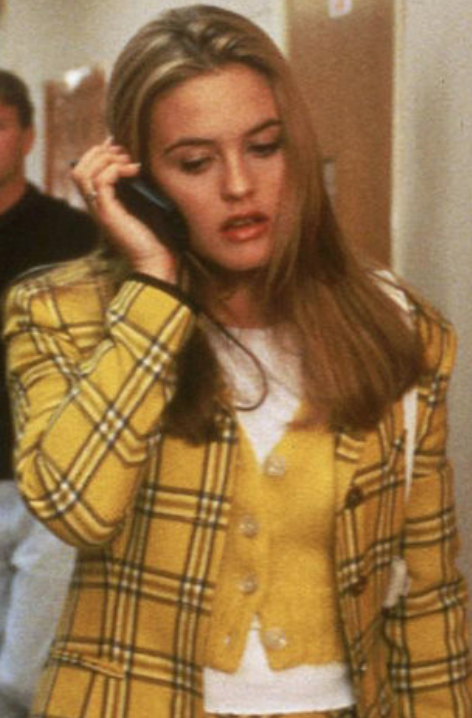Manifest Destiny and ‘The Homesman’
 Too plain and too old by 1850s standards to be considered viable marriage material, ex-schoolteacher Mary Bee Cuddy (Hilary Swank) lives by herself in the Nebraska Territory. She tends to her livestock and her land by herself, literally and metaphorically wearing men’s trousers beneath her floor-length dresses. At night, she sings in her unfaltering high voice, accompanying herself silently on a cloth she has embroidered to resemble the piano she played daily when she still lived East. In “The Homesman,” it is a life of making-do.
Too plain and too old by 1850s standards to be considered viable marriage material, ex-schoolteacher Mary Bee Cuddy (Hilary Swank) lives by herself in the Nebraska Territory. She tends to her livestock and her land by herself, literally and metaphorically wearing men’s trousers beneath her floor-length dresses. At night, she sings in her unfaltering high voice, accompanying herself silently on a cloth she has embroidered to resemble the piano she played daily when she still lived East. In “The Homesman,” it is a life of making-do.
But other settlers in the still-mostly unpopulated region are having a more difficult time. The winter has been brutal, and not everyone has survived so far with their sanity intact. Arabella (Grace Gummer) has lost her children to diphtheria and becomes a silent, doll-clutching zombie; Theoline (Miranda Otto) has been so driven to despair that she threw her newborn baby down an outhouse hole; Gro (Sonja Richter) lost her mother in the snow and has since seemed demonically possessed. Unequipped for anything except basic survival, the men of the region determine these three must be sent back East. It falls upon Cuddy to shepherd them home in a locked box wagon and, upon rescuing loutish claim jumper George Briggs (Tommy Lee Jones) from a death by hanging, she forces him to accompany them on the trek. Despite her disapproval of him and her fierce independence, she accepts that she and the other women will not survive the journey by themselves. As it is, the journey through ice storms and hostile Indian territory proves untenable for some of them.
As sere and slow as the region it describes, “The Homesman” refuses to be a likeable film. Yet it is all the more compelling for its lack of accommodation, partly because of the unabashedly feminist perspective it takes on the pitfalls of Manifest Destiny and partly because of its fidelity to its source material, Glendon Swarthout’s eponymous, admirably spare 1988 novel. Continue Reading →
Quoth the Kitten: Not Today
 My permakitten Grace and I have pretty much acclimated to the pigeons who flock on our window sill even though their ubiquity is very odd. But when she and I woke today, a crow–a large, ebony crow!–was staring at both of us. Yellow eyes gleaming, preternaturally still, it was more than a little menacing perched right there on the air-conditioner. Excuse me: Today is Thursday the 13th. These Edgar Allen Poe histrionics are a bit much.
My permakitten Grace and I have pretty much acclimated to the pigeons who flock on our window sill even though their ubiquity is very odd. But when she and I woke today, a crow–a large, ebony crow!–was staring at both of us. Yellow eyes gleaming, preternaturally still, it was more than a little menacing perched right there on the air-conditioner. Excuse me: Today is Thursday the 13th. These Edgar Allen Poe histrionics are a bit much.
Putting the Pee in Passive-Aggressive
 A one-act play to describe the general vibe of this day.
A one-act play to describe the general vibe of this day.
Scene 1: Chase Bank, 8th Avenue. Me, laden with three bags. She: Clad in workout gear, very high ponytail, mirrored glasses. Her head and hands buried in smartphone, she cuts in front of me and then lets bank door hit my face before I can rearrange my bags to catch it.
Me: Rude.
She: You know what’s ruder? Telling someone they’re rude!
Me: You know what’s ruder than telling someone they’re rude? Letting the door bang on them and then telling them they’re rude when they say you’re rude.
She: Get a life!
Me: I have one. And it’s not rude!
Scene 2: Subway entrance, 8th avenue, three minutes later.
 She (appearing out of nowhere, cutting in front of me again): I hope you’re less crazy now.
She (appearing out of nowhere, cutting in front of me again): I hope you’re less crazy now.
Me (walking behind her half a step, deliberately): Sooo much less crazy. Thank you! It’s because I have you as a model. And you’re so sane, so pretty, so gracious, so kind….(I am still listing positive adjectives as she hurries away).
Epilogue:
Me (addressing imaginary audience that follows us all in the age of social media): Yes, I have put the aggressive back in passive-aggressive. No, I am not proud of my role in this story. Yes, I am still laughing. (Giant hook appears and yanks me offstage. Obviously.) Om-shanti’d, I’m sure!
